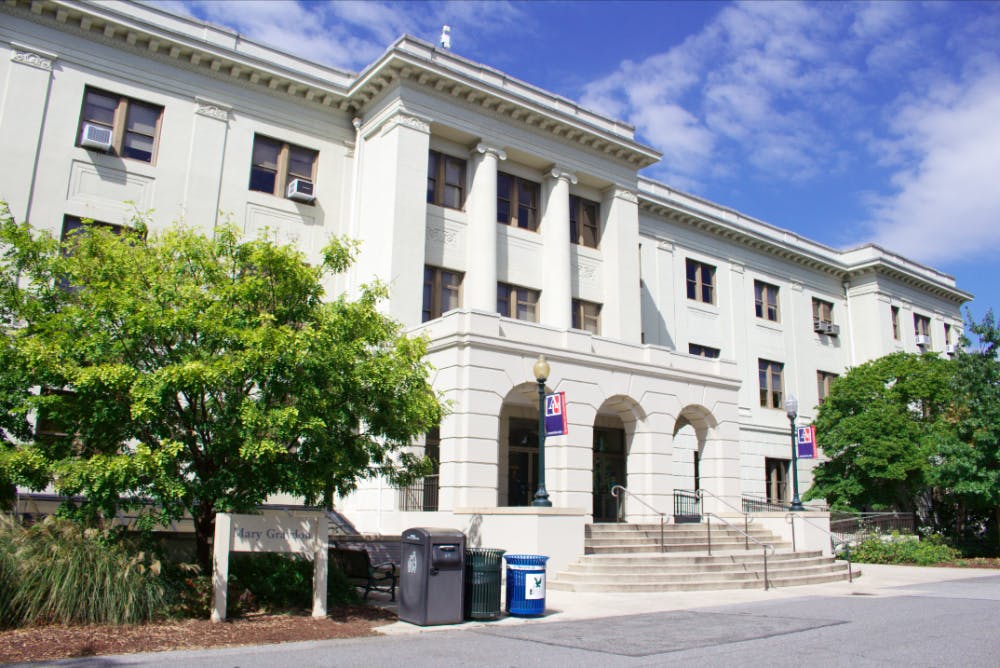Editor’s note: this article originally appeared on theeaglecoronavirusproject.com, a separate website created by Eagle staff at the onset of the coronavirus pandemic in spring 2020. Articles from that website have been migrated to The Eagle’s main site and backdated with the dates they were originally published in order to allow readers to access them more easily.
Correction: The original version of this article stated that the University declined to comment. The Eagle did not give the University an adequate opportunity to comment.
Update: This article has been updated with a quote from professor Sarah Trembath to reflect the cooperative nature of her discussions with the University.
On March 16, days after AU announced its extension of online classes for the semester due to the COVID-19 pandemic, 180 food service workers were furloughed.
Anthropology professor David Vine, as well as professors David Pike, Barbara Wien, Sarah Trembath and Robin Broad, worked to draw attention to the situation among colleagues, students and alumni. Wien forwarded The Eagle information about the situation, including the number of furloughed workers. Within 24 hours, a letter urging the administration to show support for the workers had 239 signatures.
“Due to the fact that we’re hourly workers, we only make between $18-20 an hour, most of [us] don’t have money set aside for crises,” said Anthony Randolph, who has been a food service employee at AU for nineteen years.
The country has been hit hard by widespread economic strife caused by the pandemic, with 16.8 million unemployment claims filed between March 15 and April 4. The numbers continue to climb.
Shortly after workers were furloughed, members of the AU community reached out to the University, trying to find a way to help those affected.
“There were a few faculty members who just started emailing and were quite concerned and angry, frankly, that the administration had furloughed the food service workers period, but also so quickly,” Vine said, as he recalled emails circulating among faculty members.
AU faculty members worked with the food service workers’ labor union, UNITE HERE, to negotiate with the AU administration. Seeing precedent at Harvard and Georgetown and widespread support throughout the AU community, faculty members requested for the workers to remain on staff and be paid their salary for the rest of the semester. The University declined.
Trembath said the professors asked the University to pay the workers’ benefits and give them a $1,000 gift card for their families.
“They said no to the gift card, yes to the benefits,” Trembath said. The professors wanted to keep “the negotiations in the spirit of partnership” with the administration.
In AU President Sylvia Burwell’s email to the AU community on April 6, she stated, “For the Chartwells dining workers, AU is paying the employees’ share of their health benefits for the rest of the semester (we continue to pay the employer share) and funding the workers’ retirement benefits for this same time period.”
When Randolph found out he would be receiving medical benefits and a pension, he expressed his gratitude to the University.
“Those are the two most important things to me, even though most individuals probably would have preferred whatever salary they could have gotten to try to pay the bills,” he said.
The faculty involved were pleased with the University’s decision to provide the workers with benefits but still felt that more needed to be done.
“We were concerned with how people are going to put food on the table, especially given that these are the very people who've been literally putting food on our tables for years,” Vine said.
The faculty launched a fundraising campaign to buy grocery store gift cards for the workers. Within a week, over $40,000 was raised, translating to about $200 for each worker.
“It’s important to acknowledge a lot of the people who donated – they've also lost income in their families because so many spouses are being furloughed and things like that so I just really think it was a really humbling act of generosity that people gave so much,” Trembath said.
Randolph said he received a $160 gift card this week and expects another one with a $40 value to arrive within the upcoming weeks.
“I would like to know who the donors were so we can really thank them personally because that's heart touching to see people really concerned about food service workers such as myself and the rest of my co-workers at AU,” Randolph said.





